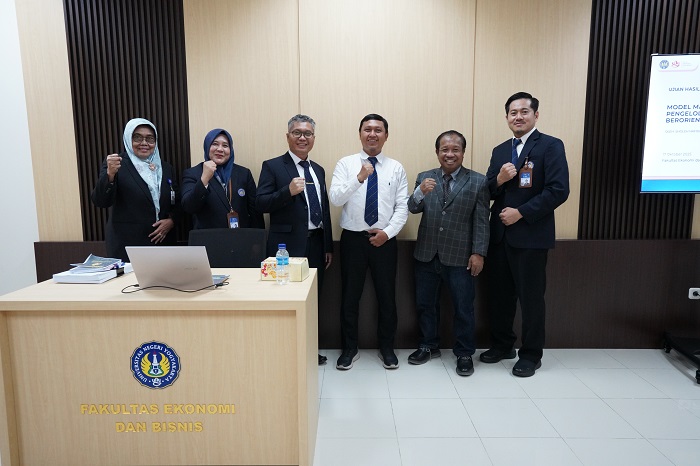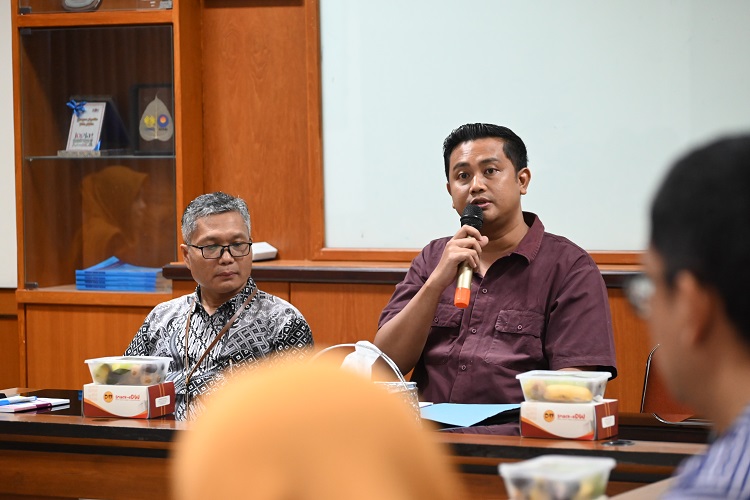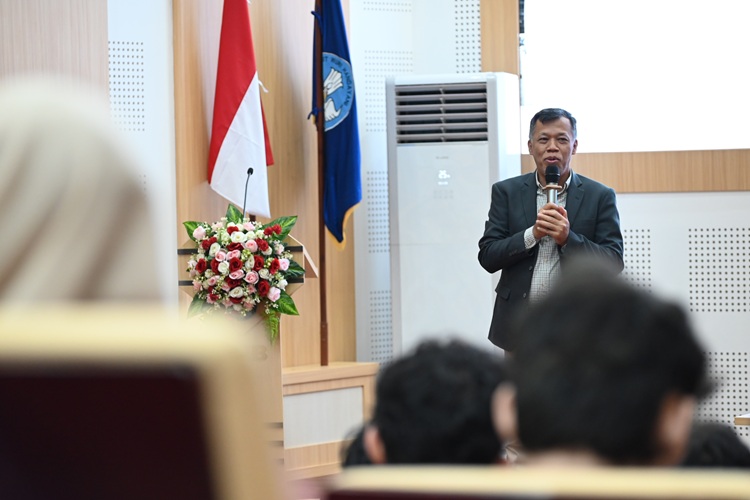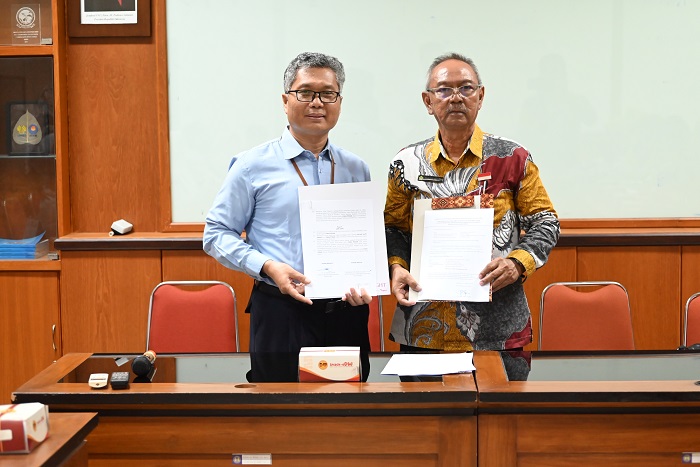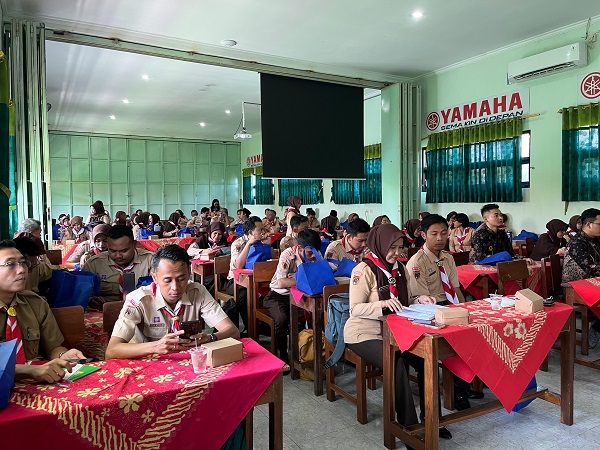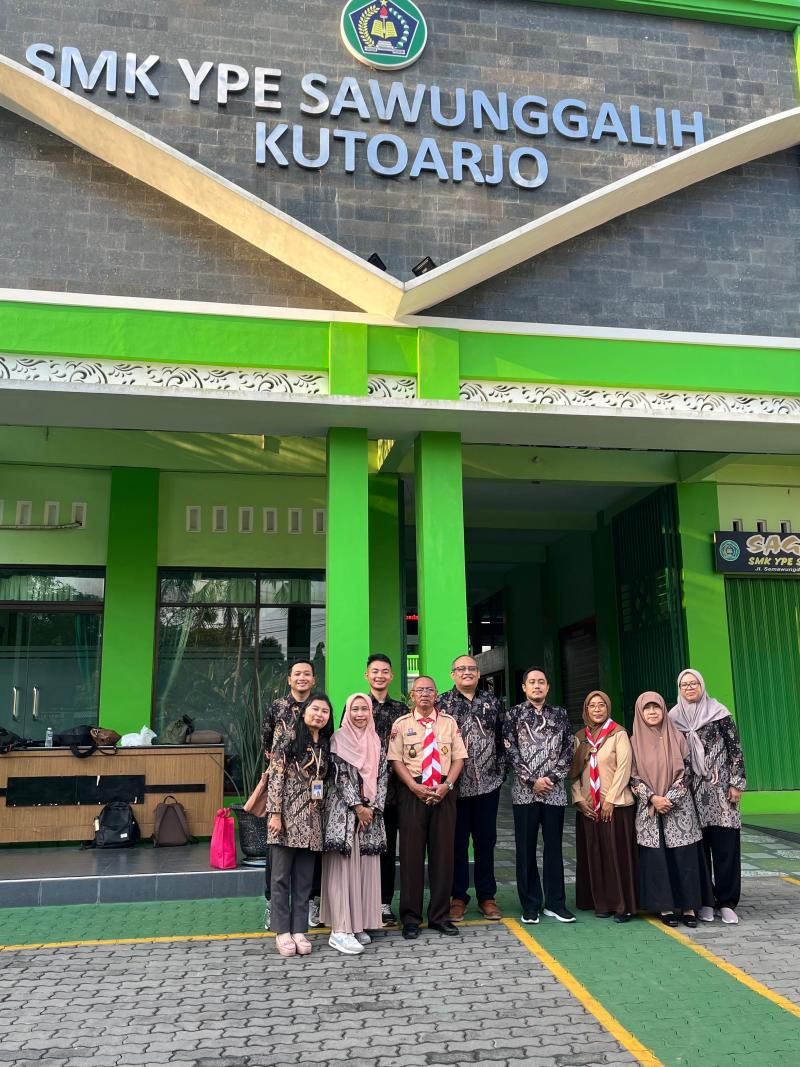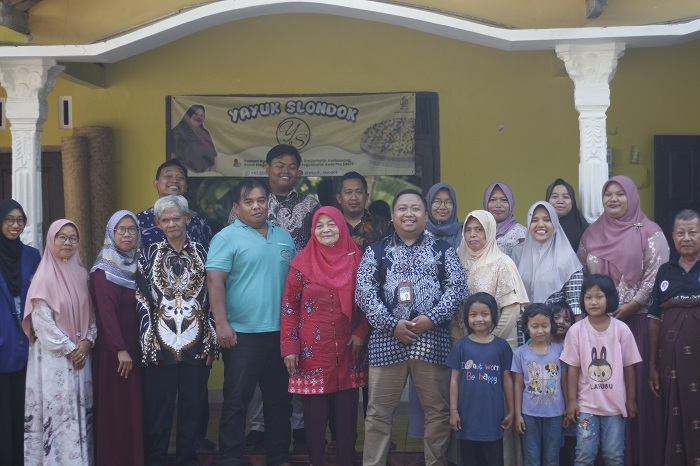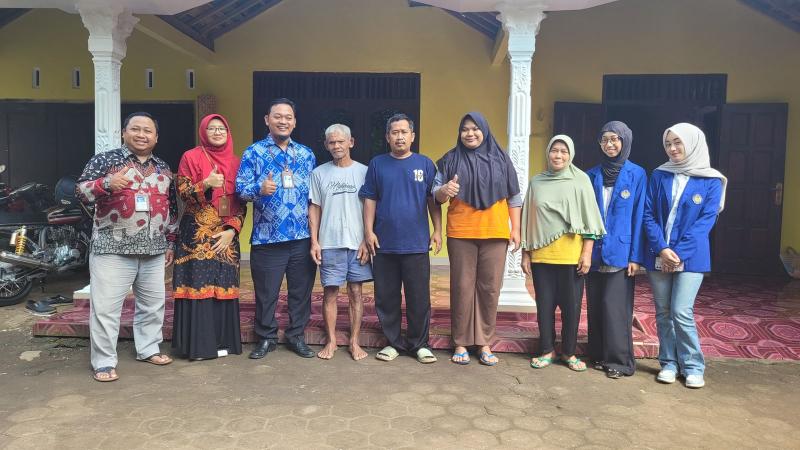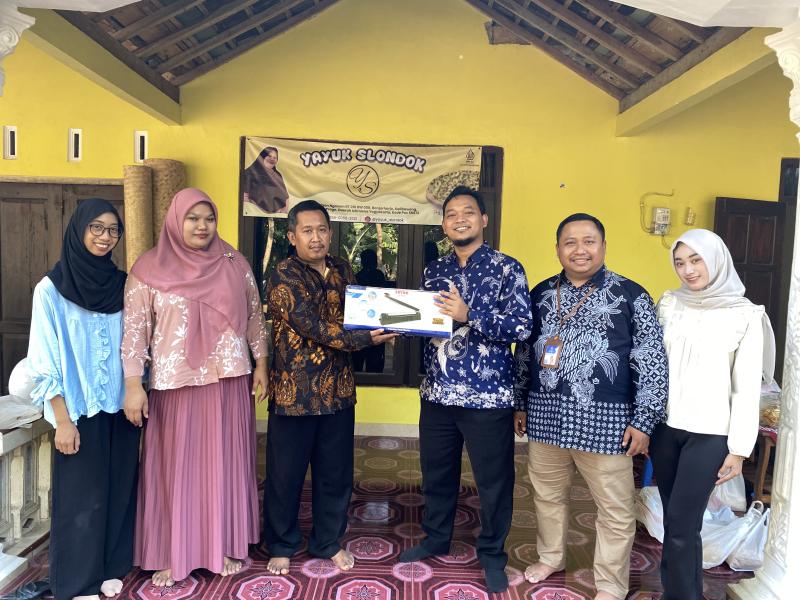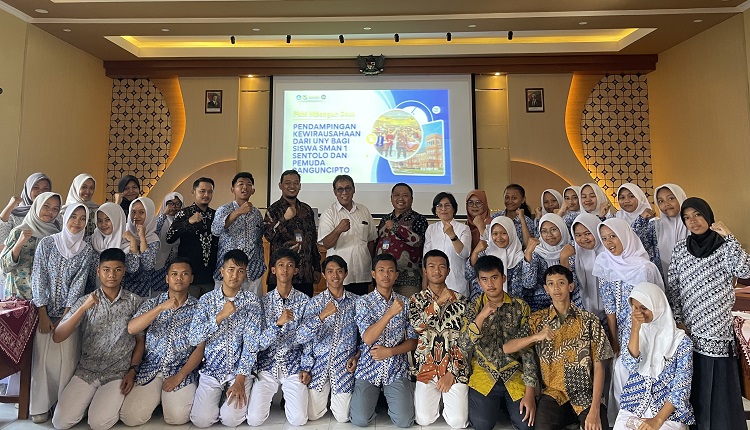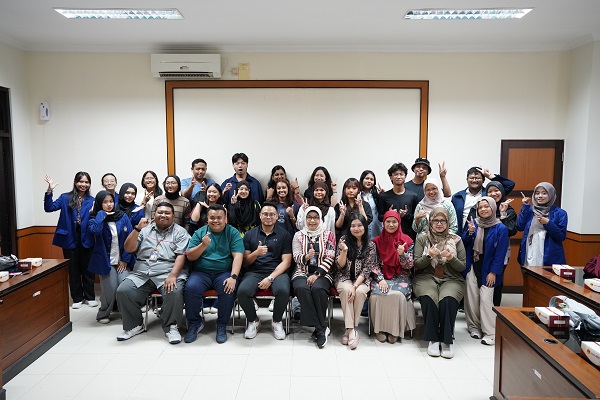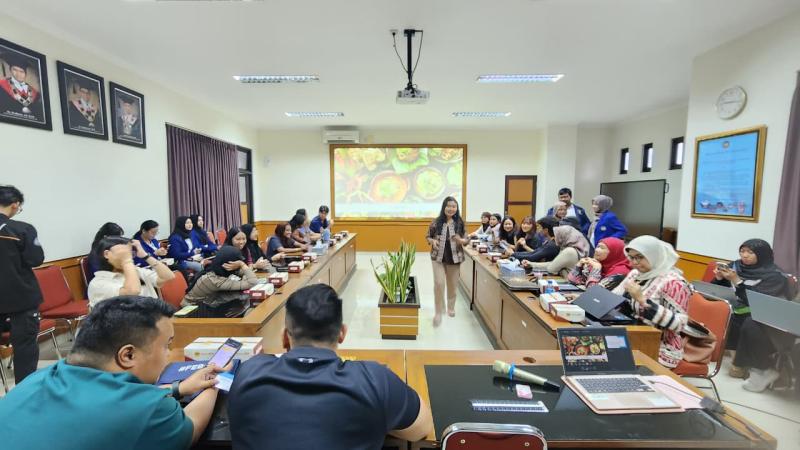ICEBESS 2025 Tekankan Kolaborasi Akademik untuk Pembangunan Berkelanjutan
Submitted by feb on Mon, 20/10/2025 - 09:27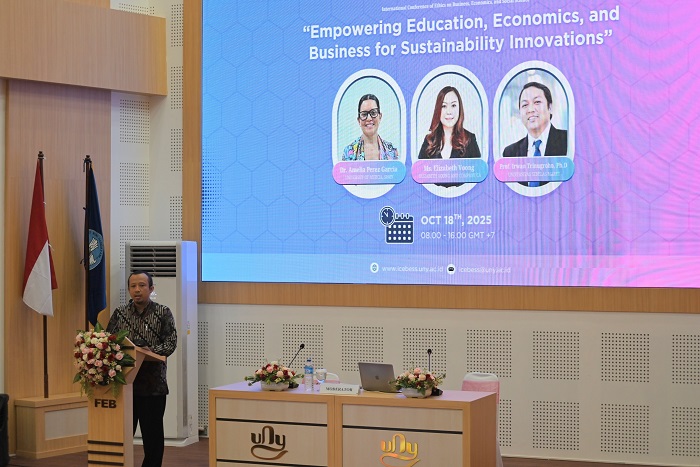
Konferensi Internasional on Ethics of Business, Economics, and Social Sciences (ICEBESS) 2025 yang diselenggarakan Fakultas Ekonomi dan Bisnis Universitas Negeri Yogyakarta (FEB UNY) kembali menjadi ruang diskusi ilmiah lintas negara. Mengusung tema besar etika dan keberlanjutan dalam ekonomi dan bisnis, kegiatan yang digelar secara daring melalui Zoom ini diikuti lebih dari 500 peserta, terdiri atas dosen dan mahasiswa dari berbagai perguruan tinggi di dalam maupun luar negeri.
ICEBESS 2025 menghadirkan tiga pembicara utama yang mewakili perspektif akademik dan profesional internasional: Ms. Elizabeth Voong dari Elizabeth Voong and Company CA, Dr. Amelia Pérez García dari University of Murcia, Spanyol, serta Prof. Irwan Trinugroho, Ph.D. dari Universitas Sebelas Maret (UNS) Indonesia. Sesi Plenary ini dimoderatori oleh Wakil Dekan Bidang Akademik, Kemahasiswaan, dan Alumni FEB UNY, Ani Widayati, M.Pd., Ed.D. Selain sesi plenary, konferensi ini juga memuat 53 makalah yang dipresentasikan dalam sesi paralel mencakup bidang ekonomi, pendidikan, dan manajemen.
Dalam sambutannya, Dekan FEB UNY, Dr. Sutirman, M.Pd., menyampaikan bahwa konferensi ini menjadi wadah strategis untuk memperkuat kontribusi akademisi terhadap isu-isu global. Hal senada juga disampaikan oleh Wakil Rektor UNY Bidang Akademik, Prof. Nur Hidayanto Pancoro Setyo Putro, M.Pd., Ph.D., yang menekankan pentingnya riset lintas disiplin untuk menjawab tantangan pembangunan berkelanjutan.
Pembicara pertama, Ms. Elizabeth Voong, mengulas topik “Fraud Observation and Business Sustainability”, menyoroti pentingnya tata kelola yang berintegritas dalam menjaga keberlangsungan bisnis. Ia menekankan bahwa praktik bisnis beretika tidak hanya mencegah kerugian finansial, tetapi juga memperkuat kepercayaan publik terhadap institusi. Pendekatan deteksi dan pencegahan kecurangan yang berbasis data disebutnya sebagai kunci dalam menciptakan budaya transparansi di sektor korporasi.
Sementara itu, Dr. Amelia Pérez García membawakan materi bertajuk “Sustainability as a Driver for Growth and Development”. Ia menjelaskan bagaimana pendidikan, teknologi, dan model bisnis baru kini menjadi motor penggerak utama bagi pembangunan berkelanjutan. Melalui empat pilar — human capital, social cohesion, economic prosperity, dan environmental protection — Dr. García menegaskan bahwa keberlanjutan tidak lagi dipandang sebagai biaya, melainkan sebagai sumber inovasi, ketahanan, dan daya saing ekonomi global.
Topik berikutnya disampaikan oleh Prof. Irwan Trinugroho, Ph.D., yang membahas hubungan antara financial inclusion, digital technology, dan economic growth. Berdasarkan kajiannya terhadap 84 negara, ia menunjukkan bahwa teknologi digital berperan penting dalam memperluas akses keuangan dan mendorong pertumbuhan ekonomi, terutama di negara berkembang. Prof. Irwan juga menyoroti peran FinTech dalam menciptakan peluang kerja baru serta menekan angka pengangguran ketika didukung oleh regulasi ketenagakerjaan yang adaptif.
Konferensi ini menegaskan relevansi penelitian terhadap pencapaian Sustainable Development Goals (SDGs), khususnya pada tujuan ke-8 (Decent Work and Economic Growth), ke-9 (Industry, Innovation and Infrastructure), serta ke-13 (Climate Action). Melalui sinergi pendidikan, teknologi, dan kebijakan publik yang beretika, ICEBESS 2025 menegaskan peran penting dunia akademik dalam memperkuat fondasi pembangunan yang inklusif dan berkelanjutan. (fdh)


